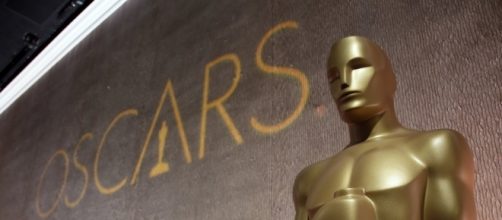[This is the second part of an article that you can find here]. And so Hollywood has hidden deeper messages inside understated narratives. But changing the way of saying things means also a change in showing them. Special effects are used no more to generate awe or marvel but
And so Hollywood has hidden deeper messages inside understated narratives. But changing the way of saying things means also a change in showing them. Special effects are used no more to generate awe or marvel but to integrate perfectly the stories into the Story. What Forrest Gump once did as an exercise of style, today it's taken quite seriously, with characters moving into real archive footage or colours that make us feel like we are there, living once again the past.
Let's take Jackie as an example. The (in)famous images that are now part of our collective imagination, the assassination of JFK, are not there anymore to tell us that we are talking about something that has been real. They ARE real, right here, right now, on the screen. Jackie, or even more, the amazing Portman who is Jackie, is there, inside the Story. We don't need anymore those images as a support to show that those were facts. We've been there, now it's time to go further, showing the "hidden figures" that were there.
Everything has been said
Also, the context in which these heroes move is different. With the access to information that Internet has brought up, the audience has grown up. The new storytellers don't feel the need to hide apparent truths between the lines.
In most of this year's movies, some subjects are not a taboo anymore. A 15-years old speaking of sex and multiple relationships with his uncle, another one talking about feminism and orgasm with his mother, a father teaching his offspring what is communism; a black woman shouting at her boss to behave like a boss, a mother asking his son for money to get a fix, this same child, at the age of ten, asking an adult what is a faggot. Drugs, sex, careerism, vanity. All is explicit - and said in the most natural, simple, direct way, as when Jackie says to the priest: "I never wanted fame. I just became a Kennedy". So, maybe, if it is now so easy to say things - if the Web made us braver and less bigot about certain topics, there is something else missing in our attempt to communicate our inner feelings and sorrow.
Once it was called Contact, now it's called Arrival
The new crisis in communication is the lack of contact. As I said before, there is a need for connection. But this connection is not a mere friendship on a social channel or an ear that can listen to us. We are craving now for something more physical, emotional, experiential. When, in Arrival, communication through language is failing, Amy Adams needs to go beyond all the symbols, and dive into a mystical but at the same time physical experience. And when she gets back, it's hard for her to let other people - the blind, dumb mass - understand what now she feels. Seeing with our own eyes - like in the beautiful docs presented this year, from the Italian Fire at Sea to the shocking short docs from Netflix.
Touching with our own hands, feeling the contact: the end scene of Moonlight says it all. It could sound obvious, but we easily forget the obvious. And movies are there to remind us of the amazing tools that we have been gifted with. The power of a hug, especially on the big screen, is something that we know since the unforgettable final scene of As We Were. And today it has come back to give us even multiplied emotions, as the ones we felt seeing Saroo reuniting with his mother after 25 years, thanks to that same Internet that is draining all our emotional connections.
#Oscars2017 #cinema

